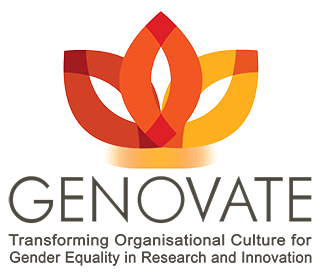 The GENOVATE Community is a platform which enables GENOVATE partners to share institutional information and case studies, and facilitates the coordination of a buddy system for bench learning.
The GENOVATE Community is a platform which enables GENOVATE partners to share institutional information and case studies, and facilitates the coordination of a buddy system for bench learning.
The GENOVATE Community consist of seven GENOVATE partner institutions; the GENOVATE International Advisory Board; key strategic collaborators and stakeholders and the general public. It is a mechanism designed to facilitate meaningful knowledge exchange across the community at local, national and international levels within each of the partner institutions’ countries, across Europe and globally.

For the XXX edition of Futuro Remoto, the team of GENOVATE@UNINA has involved a large audience of visitors on a reflection on the gender dimension in the world of research and innovation.
The interactive exhibition, held on 7-9 October, was based on information on GENOVATE's actions and the presentation of the Gender Observatory on University and Research at the University of Naples Federico II: the first shown through three roll-up panels, the second inviting the audience to associate comic book baloons in which male and female characters had fallen in work situations or discussed about their respective careers.

In order to ensure the sustainability of GENOVATE project at the Università degli Studi di Napoli Federico II, the Gender Observatory on University and Research has been established in our institution.
The Gender Observatory aims to promote:
The Gender Observatory consists of four research areas:

LTU’s Sense Smart Region (2015-2017) project http://en.sensesmartregion.se combines data from sensors and open data into useful information, and provides tools to present the information using augmented reality. The first two years the project will focus on building a platform, and the last year, companies and organisations will build services and products based on the platform. The collaboration with GENOVATE aims to promote e.g. more gender-aware management of the SSR project.

Achievements of the GENOVATE FP7 project are discussed at the EARMA Annual Conference June 20-22, 2016 in Luleå. Carina Mattsson and Maria Hjelte present how the Human Resource department is implementing a gender-aware and sustainable recruitment process at Luleå University of Technology (chair: Paula Wennberg). In an other session the GENOVATE Toolkit is launched and demonstrated by Paula Wennberg and Arne Gylling presents how gender dimension is being integrated in the OPTi H2020 project (chair: Ylva Fältholm).
The aim of the OPTi H2020 project is to create a long-lasting impact by rethinking the way district heating and cooling systems are architected, controlled and operated.EARMA, European Association of Research Managers and Administrators is active in the GENOVATE project as a stakeholder. This year’s EARMA conference takes place in Luleå with nearly 600 participants http://www.earmaconference.com/
Read more about this GENOVATE Learning Circle on CDT's website. The learning circle is organised in collaboration with EARMA AC 2016. http://www.ltu.se/centres/cdt/Om-oss/Genus-och-mangfald/Genovate-Learning-Circle-2?l=en
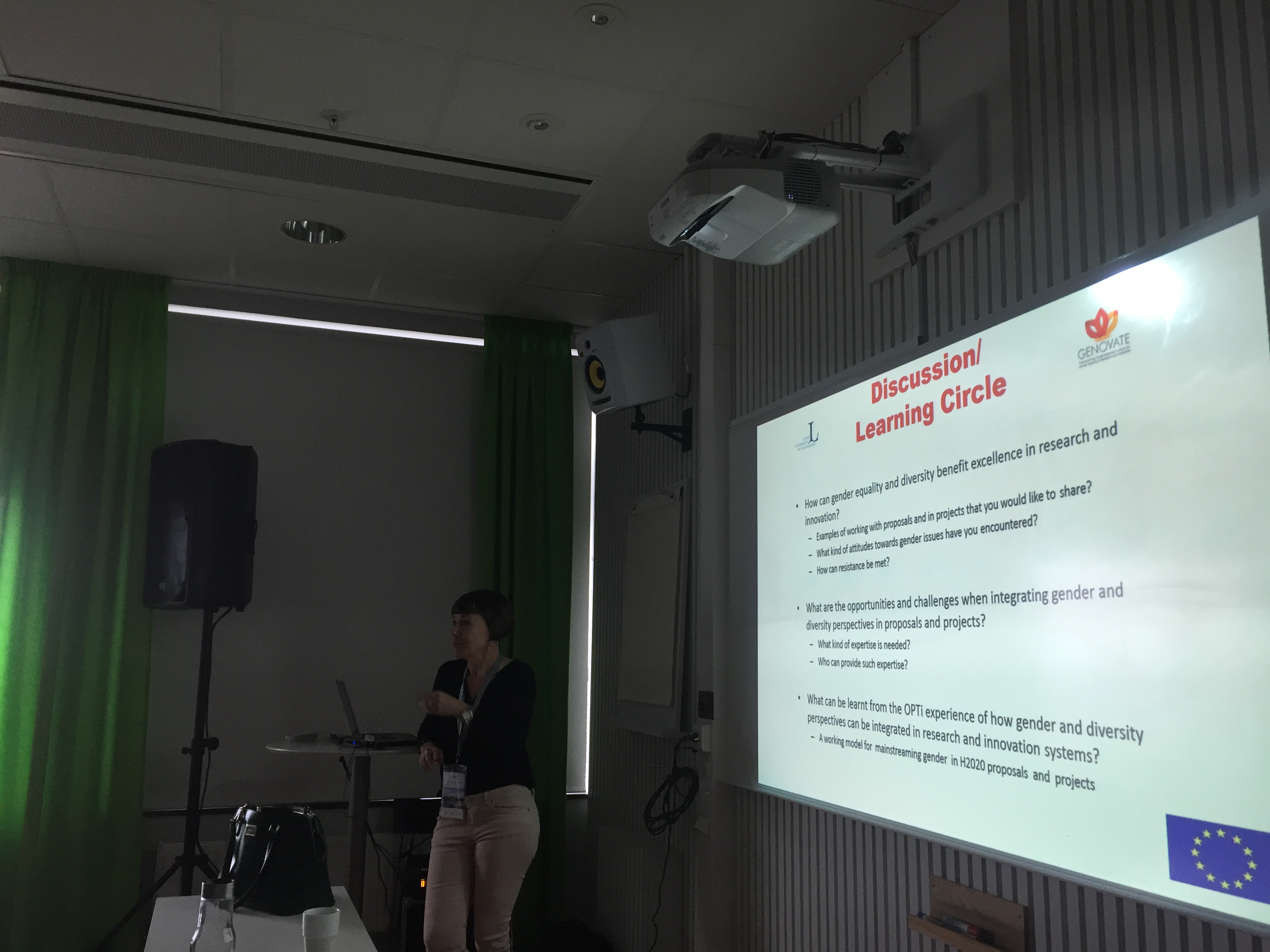
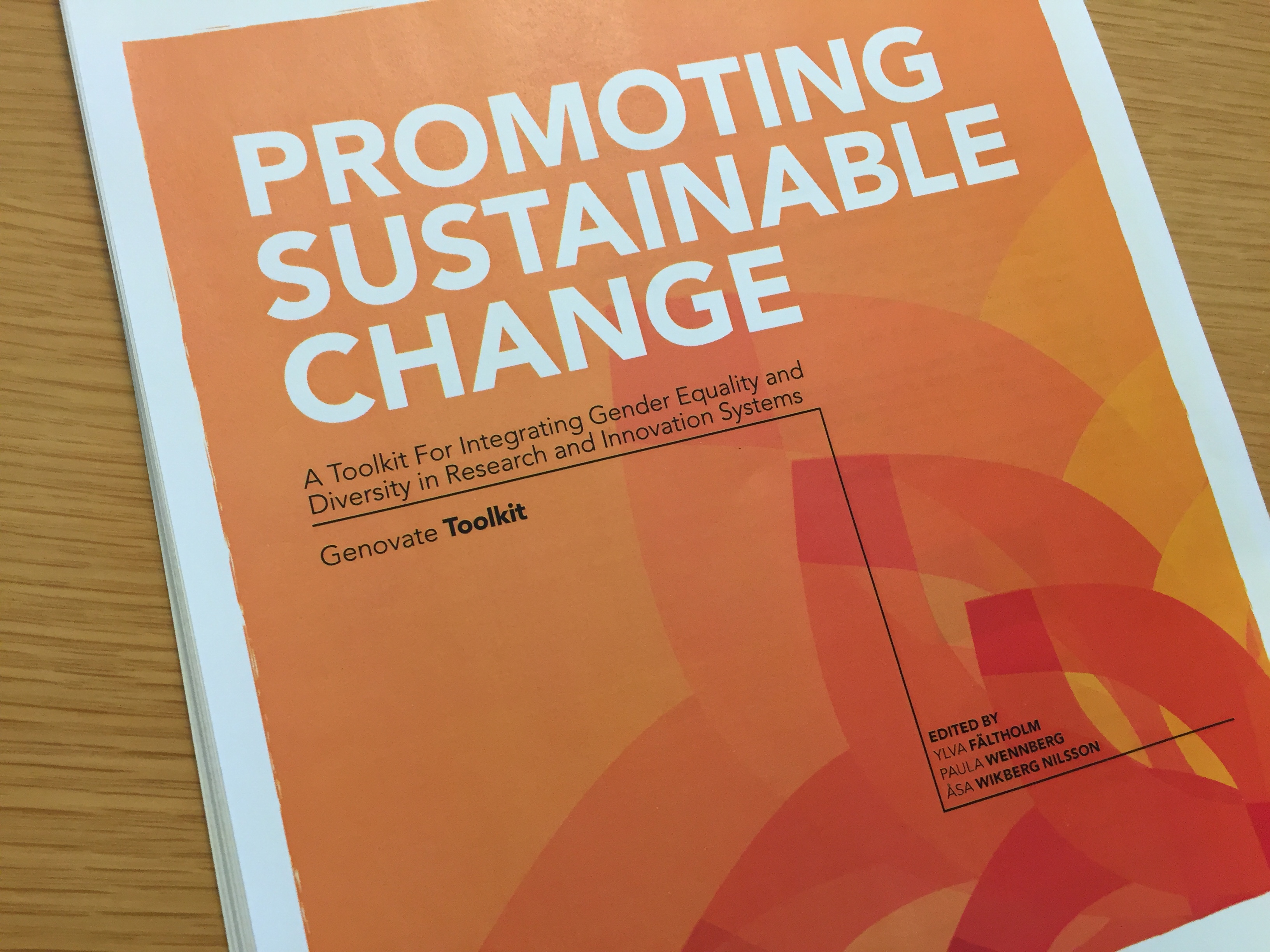

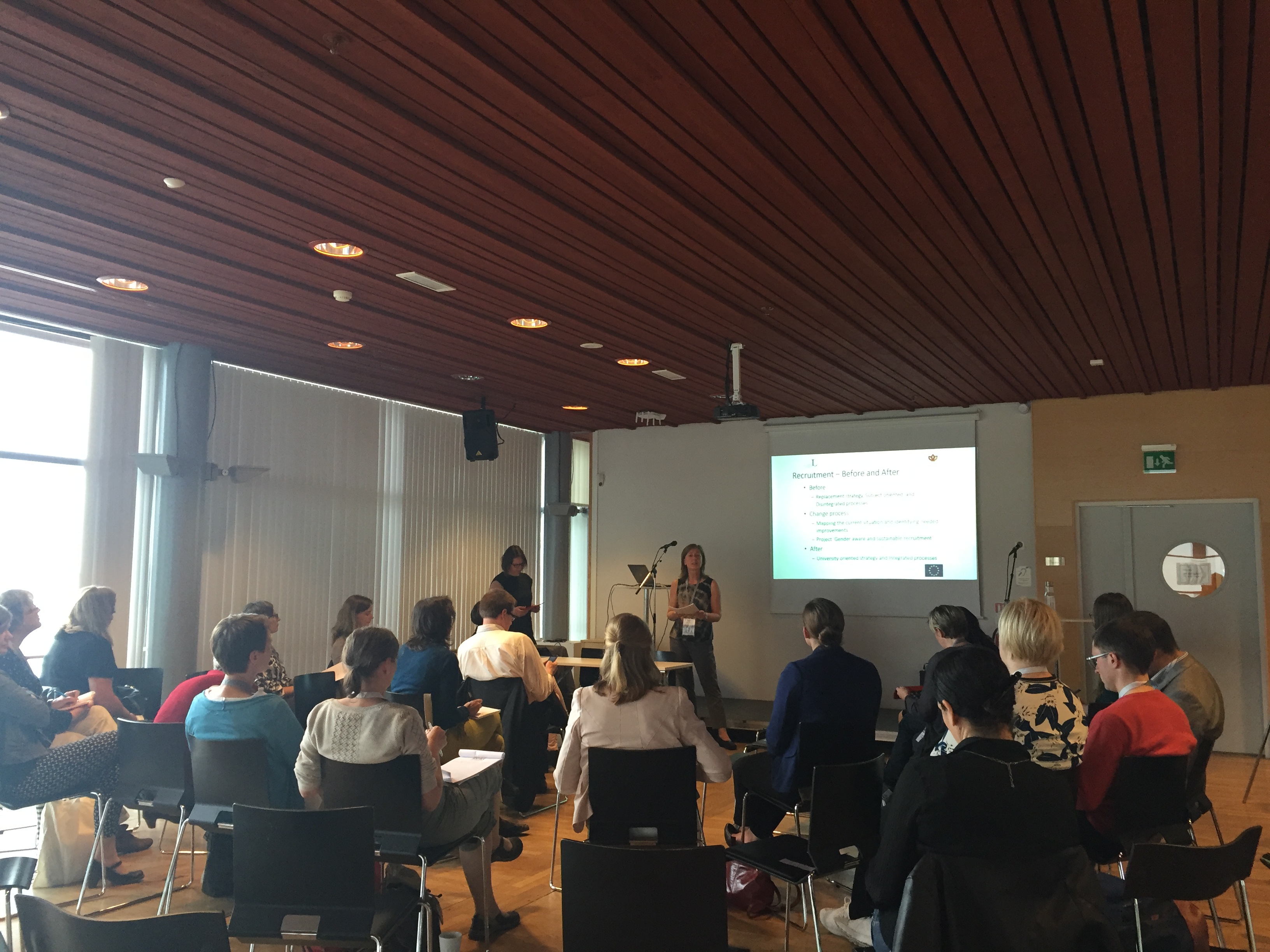

At today’s staff meeting the Head of the Department of Computer Science, Electrical and Space Engineering welcomes a new PhD student, Angelica Brusell. She has been recruited into the LTU’s PhD program of control engineering. The male dominance in the ICT sector in European countries is well known and although we have a long way to go before we achieve gender-balance in ICT we don’t give up. Today we took a small step forward. Welcome Angelica Brusell!
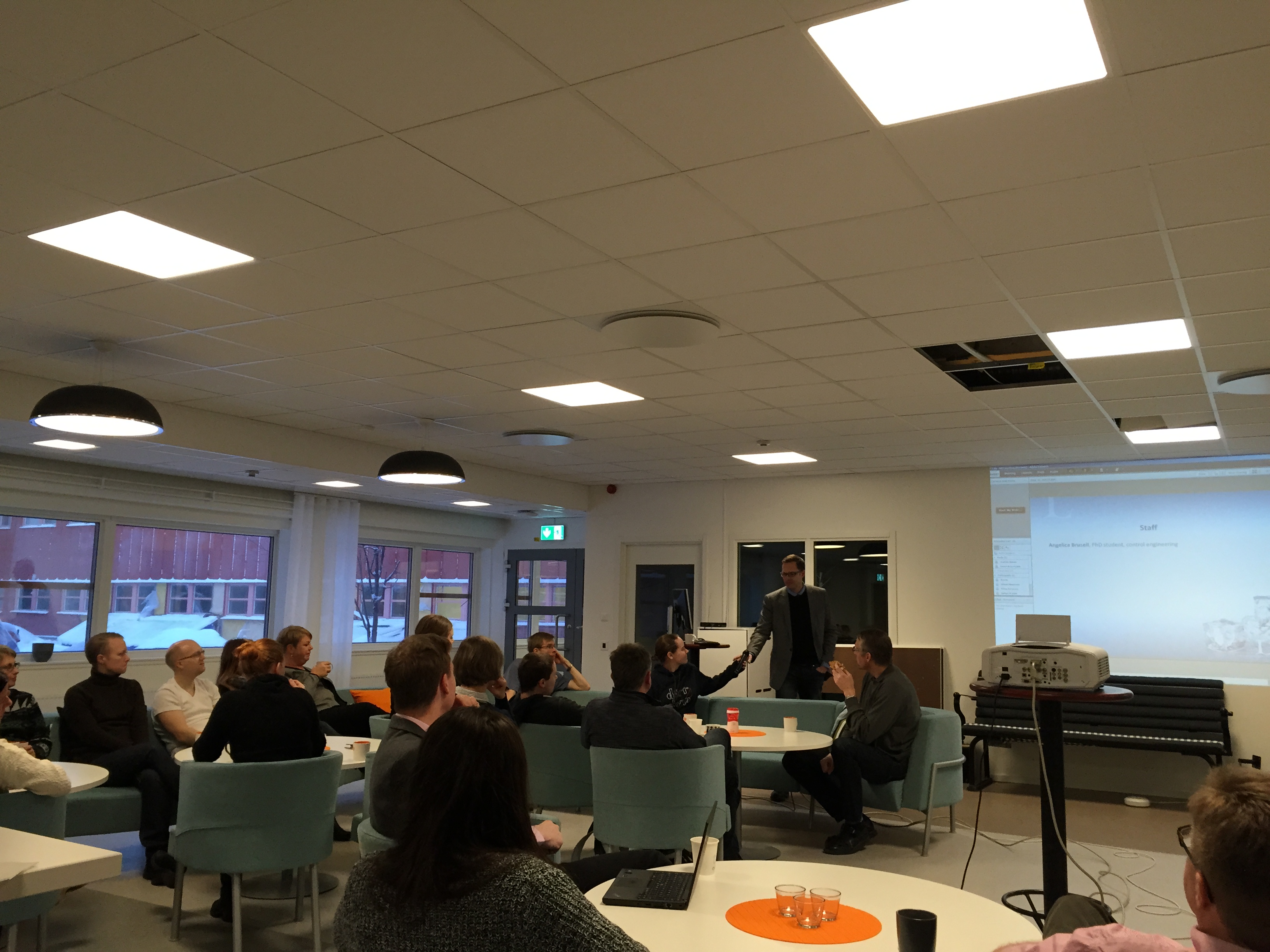
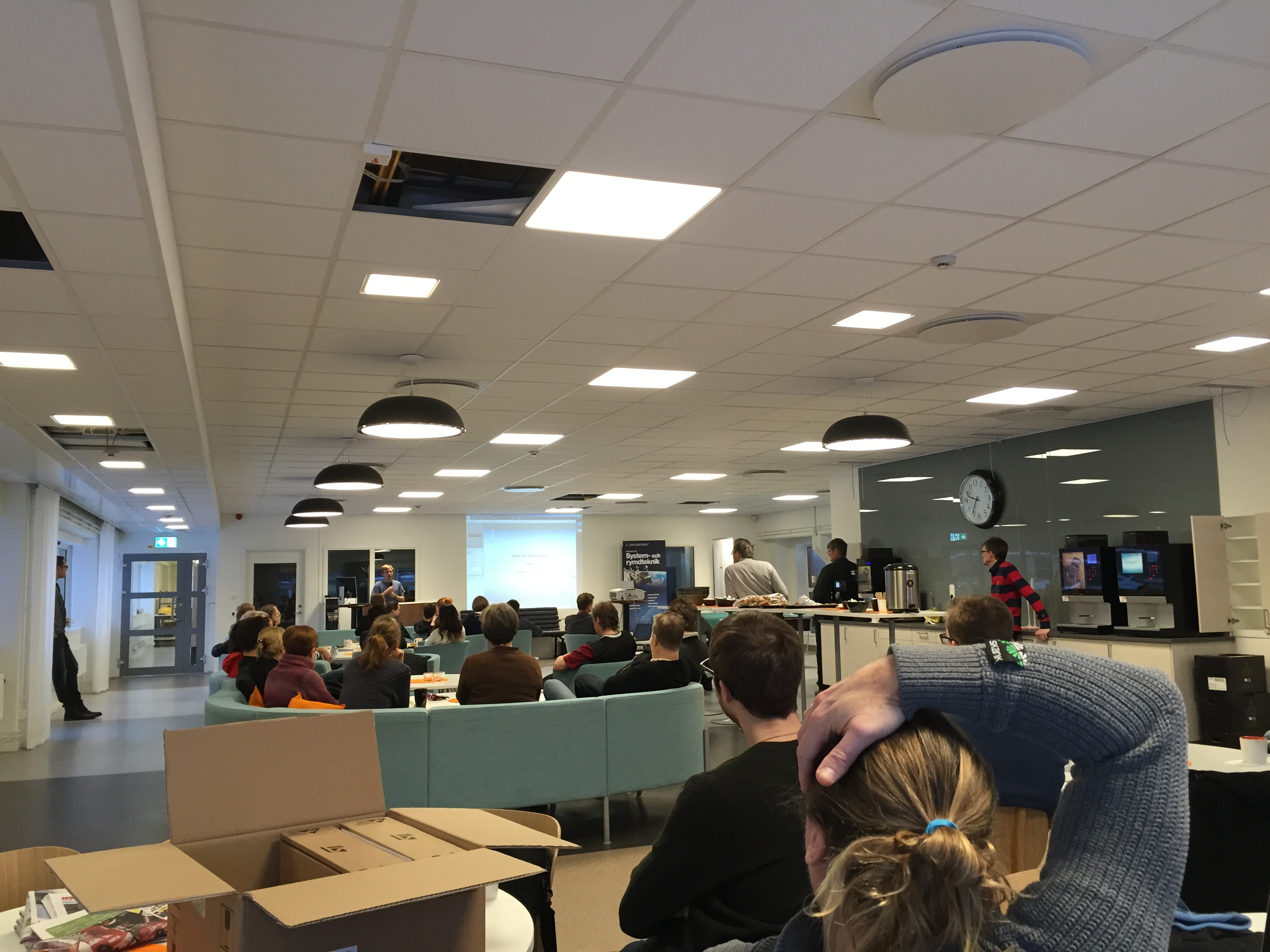

The kick-off meeting of a new working group on cultures and diversity in research management and administration was held on November 25, 2015 with Susi Poli (Italy), Olaf Svenningsen (Denmark) and Paula Wennberg (Sweden) as proposers. EARMA (European Association of Research Managers and Administrators) is one of the GENOVATE stakeholder organizations. We also submitted an abstract to the EARMA annual conference 2016 in Luleå.
The objectives of the new working group (WG CD) are
- to gain an understanding of the effects and impacts of cultures and how to cope with these
- to share cultures within the ERA
- to valorise differences in research and in the practice of research management
- to create value through cultural and gender awareness
- to be prepared for possible and/or likely future cultural clashes/challenges

Powered by Multicategories for Joomla!2.5